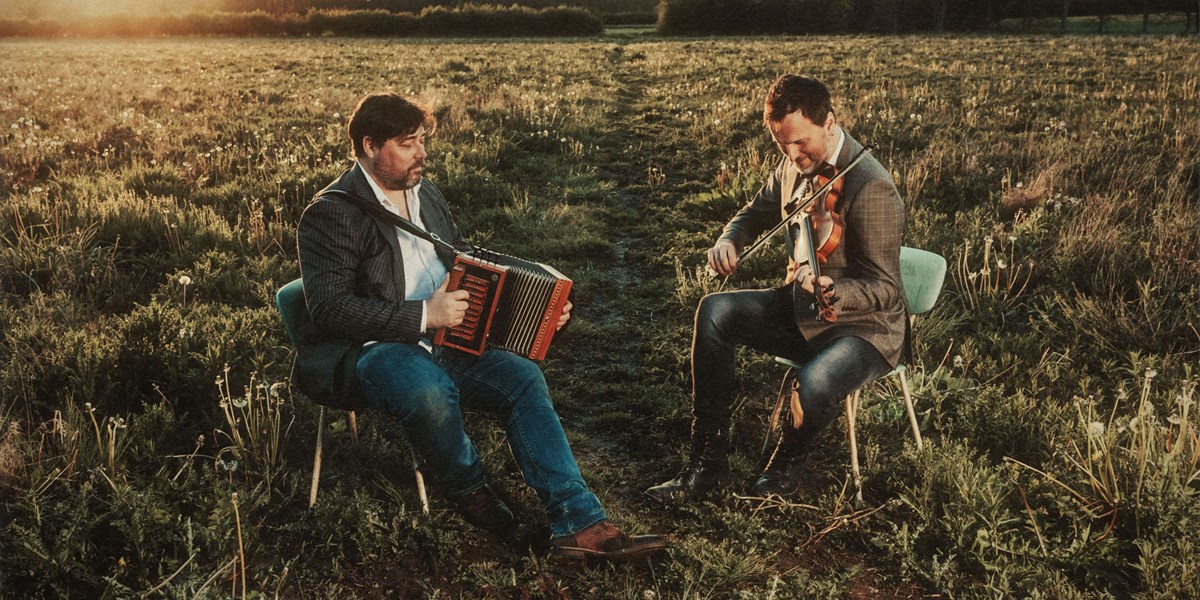Tuesday, October 19, 2021
“Looking for material during the lockdown we were drawn to happy songs, as a sort of tonic” | Spiers & Boden interview
By Julian May
Lockdown offered folk duo Jon Boden and John Spiers time to revisit some of the more joyful corners of the traditional English canon. They speak to Julian May about the resulting album and the process of working together again

Spiers & Boden (photo: Elly Lucas)

Register now to continue reading

Thanks for visiting the Songlines website, your guide to an extraordinary world of music and culture. Sign up for a free account now to enjoy:
- Free access to 2 subscriber-only articles and album reviews every month
- Unlimited access to our news and awards pages
- Our regular email newsletters

